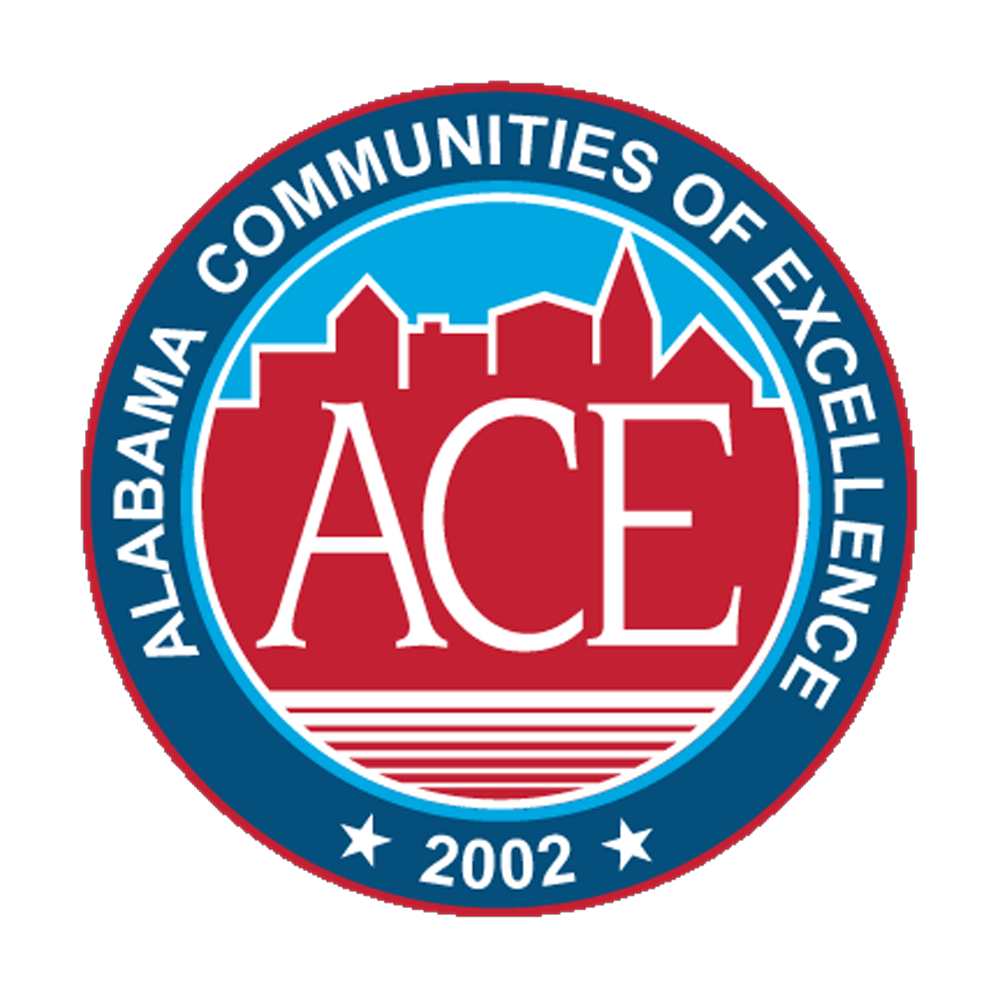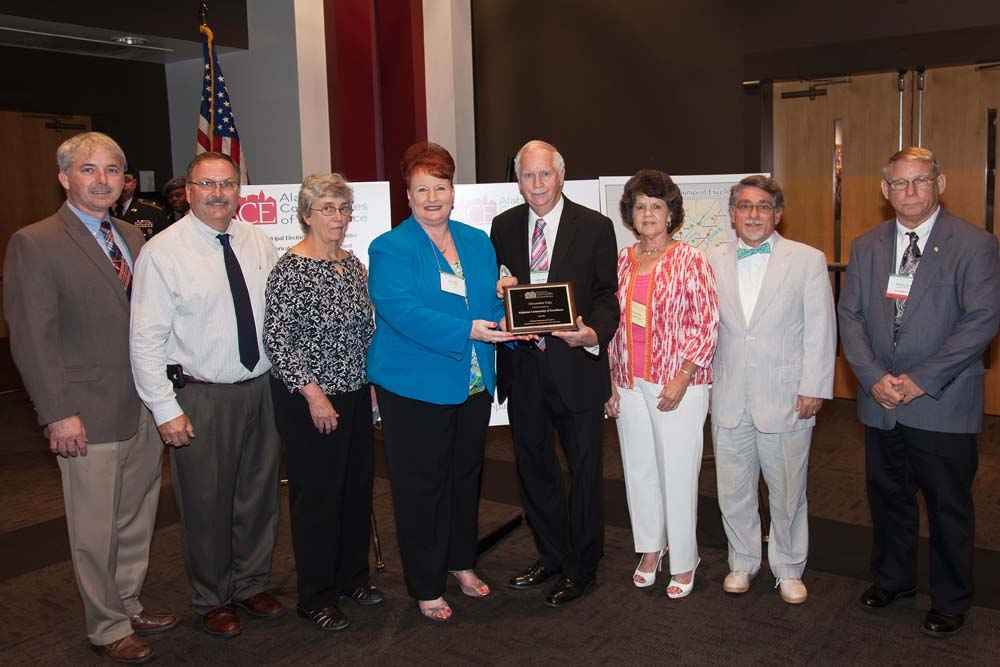Tuscaloosa, Alabama—Alabama Communities of Excellence (ACE) recently designated five new communities after they successfully completed the ACE three-phase approach to economic and community development for cities with populations between 2,000 and 18,000.
Alexander City, Elba, Fairhope, Rainsville, and Saraland were recognized as the newest members of an elite group of Alabama’s small communities. They have all completed each of the three phases for becoming an Alabama Community of Excellence and join the ranks of 26 of Alabama’s finest small towns as they shine as true centers of excellence.
“We commend the leadership and many stakeholders of the designated communities for their dedication to ensuring long-term economic success for their communities through the Alabama Communities of Excellence (ACE) process,” said ACE President Lisa Miller. “The ACE program offers a systematic three-phase approach with technical resources and the tools needed to help Alabama’s small towns foster growth and prosperity by focusing on their distinctive assets and resources.”
[wooslider slider_type=”attachments” thumbnails=”default” show_captions=”true”]
Phase I is known as the assessment phase. During this time, a comprehensive report card detailing community assets and weaknesses is prepared by an ACE Team and presented to the community along with recommended strategies and actions.
During Phase II, the Leadership Development and Strategic Planning component, each community must establish a leadership development program, prepare an up-to-date strategic plan, and identify a local nonprofit development organization.
Phase III is the Implementation and Comprehensive Planning segment. Issues addressed during Phase III include comprehensive planning, commercial business development, education enhancement, infrastructure, health and human services, retiree attraction, tourism, economic development, and quality of life.
To maintain the Alabama Community of Excellence designation, a community must be recertified within three to five years of designation. These five communities will be eligible for recertification in 2018.
Throughout each of these phases, ACE Partners work with each community to successfully achieve their goals. “The ACE program would not be possible without the financial support and expertise provided by our partners. We thank all of our partners for their support and interest in the development and growth of Alabama’s smaller communities,” said Miller at the announcement at the Alabama League of Municipalities Annual Conference.
ACE Partner organizations include: Alabama Association of RC&D Councils, Alabama Association of Regional Councils, Alabama Department of Commerce, Alabama Department of Economic and Community Affairs, Alabama Historical Commission, Alabama League of Municipalities, Alabama Municipal Electric Authority, Alabama Power Company, Auburn University Economic & Community Development Institute, Goodwyn, Mills & Cawood, PowerSouth Energy Cooperative, Regions Bank, Southeast Alabama Gas District, the University of Alabama Center for Economic Development, and the University of West Alabama.
Twenty-six communities have previously been certified as Alabama Communities of Excellence. They are: Arab, Atmore, Brewton, Childersburg, Demopolis, Eufaula, Evergreen, Fayette, Foley, Graysville, Guin, Gulf Shores, Guntersville, Haleyville, Hartselle, Headland, Heflin, Jackson, Jacksonville, Leeds, Livingston, Millbrook, Monroeville, Montevallo, Thomasville, and Valley. The addition of Alexander City, Elba, Fairhope, Rainsville and Saraland brings the total to 31 Alabama communities that have been designated as Alabama Communities of Excellence.
The all new Class of 2015 was also announced: Abbeville, Geneva, Jasper, Oneonta, Red Bay, and Spanish Fort all begin the process of becoming ACE communities this summer, joining Helena which continues working through the phases of the ACE program.
There are two main criteria used to select ACE participants: 1) the level of local commitment to the ACE program, and 2) the community’s capacity to support the ACE program, including the ability to develop and implement their strategic planning process.
About ACE: Created in 2002 as a 501 (c)3 non-profit corporation organized for the purpose of utilizing the collective expertise of its partner organizations, ACE provides participants with a “one stop shopping” type of experience—community development programs and tools needed to insure long term success found through one organization.

